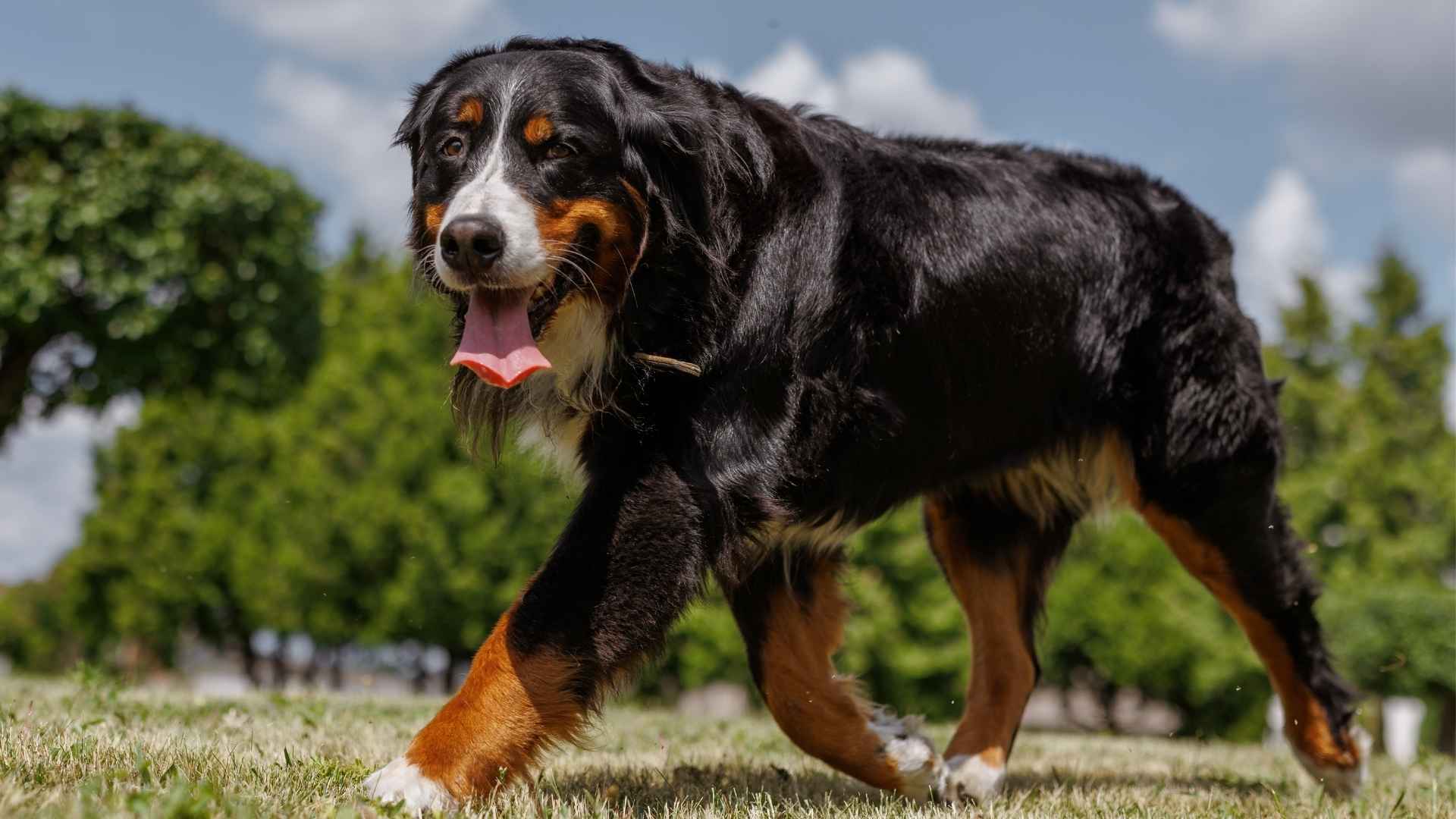Imagine your senior dog nudging you for yet another round of play, eyes sparkling with the same excitement they had as a puppy. This isn’t just a heartwarming scene—it’s backed by science.
According to the American Kennel Club (AKC), “inactive dogs were 6.5 times more likely to develop cognitive dysfunction” compared to active dogs of the same age.
That’s not all. U.S.News highlights a study showing that dogs who engage in daily exercise, interactive play, and social activities experience a 1.74% annual increase in hippocampal volume—a key brain region for memory and learning, helping slow age-related decline.
That’s serious science showing elderly dogs can keep that playful, curious energy well into their golden years.
Dog Breeds That Stay Playful Into Old Age
Here are the 9 best dogs that stay playful:
1. Labrador Retriever
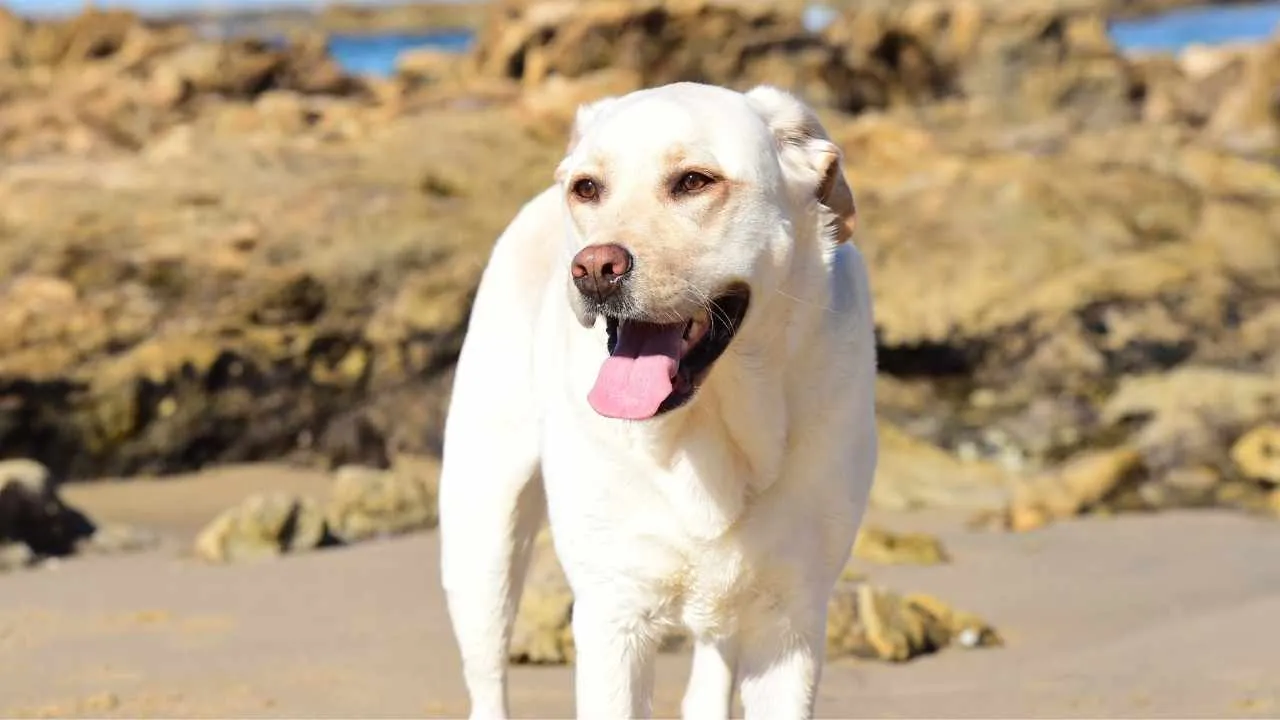
The Labrador Retriever is more than a household name—it’s a non-stop, tail-wagging engine of affection and athleticism. Originally bred in Newfoundland to haul fishing nets and retrieve game, Labs were made to work, swim, and stay busy.
Over time, their easygoing temperament and keen intelligence earned them a top spot among pet parents, service animals, and therapy partners.
Why Labrador Retrievers Stay Forever Young
Play Hard, Age Slow: Labs don’t just stay energetic—they thrive on play. They keep that goofy, bounce-off-the-walls energy into their senior years, making them perfect for families that never sit still.
Ready for Anything: Labs love to be included. Hiking, swimming, jogging, or just backyard games—they want in. This makes them one of the perfect dogs for homes that enjoy movement and fun.
Service-Minded Soul: They’re naturally tuned into people. That’s why they’re often chosen for service jobs—from guide dogs to emotional support. They know how to read a moment and respond.
Distinct Traits That Set Labs Apart
Water Obsessed: With webbed feet and a coat made for repelling water, these dogs are built for a splash. You’ll never have to convince a Lab to jump into the lake.
World-Class Sniffers: Their nose is more than decoration—Labs are used for everything from drug detection to search and rescue, thanks to their sharp scent skills.
Shedding Pros: It’s designed for insulation, but it comes with a cost: fur on your furniture, in your car, and probably on your toast.
Natural Fit with Kids: Labs are easygoing and typically adjust well to other pets in the home, including felines, if introduced properly.
Mouthy by Nature: Labs love to carry things in their mouths. Training helps curb chewing tendencies early, but that desire to hold, nudge, or gently gnaw on stuff sticks around.
2. Golden Retriever
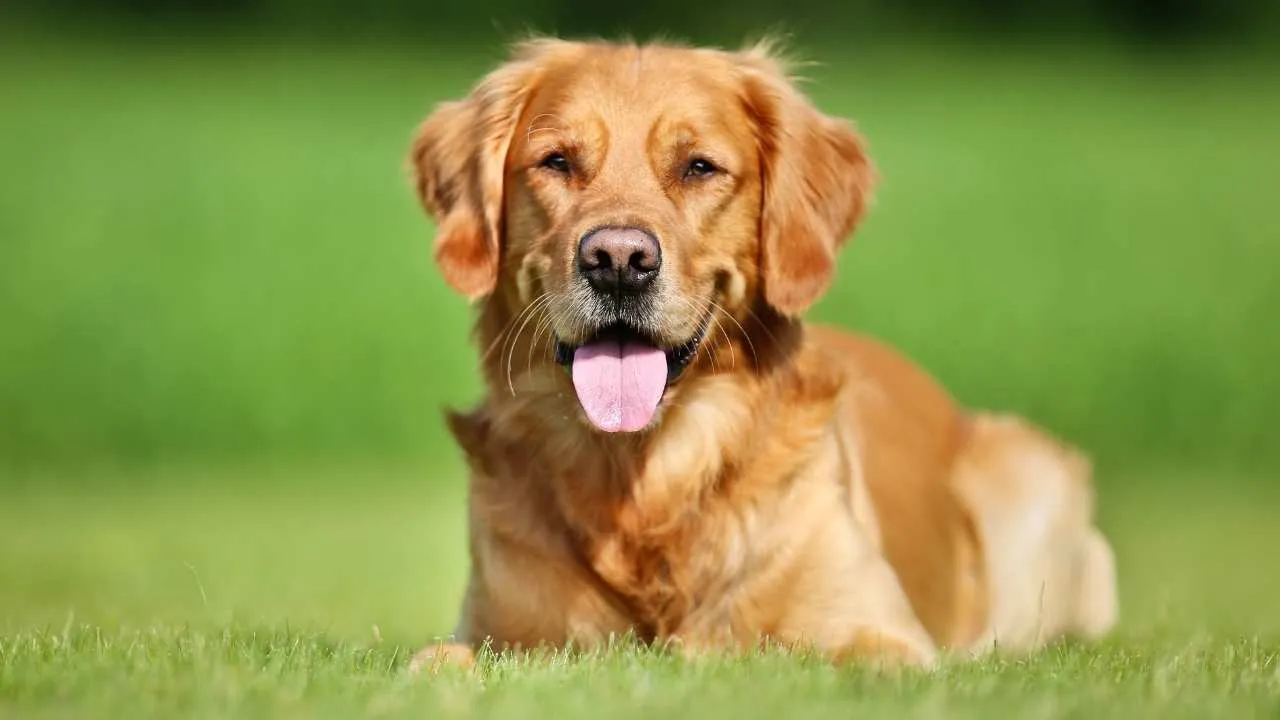
Goldens don’t just stay playful into old age—they practically perfect the art of cheerful aging. Originally bred in Scotland as hunting companions, they’ve become one of the most beloved dogs around the world for good reason.
Their ability to read human cues makes them naturals for emotional support, therapy work, and structured training.
What Keeps Goldens Forever Young
Adaptable Companions: Unlike some breeds that demand a strict routine or environment, Goldens can shift gears. Whether you’re active or more laid-back, they’ll match your rhythm while still nudging you outside for some fresh air and playtime.
Reward-Driven Learners: Their drive to please makes training a breeze. From simple commands to agility courses or advanced obedience, they’re always ready to learn—especially if there’s praise (and a treat) involved.
Distinct Traits That Set Goldens Apart
Water Lovers: Their double coat and webbed feet weren’t just for show—they were built to retrieve in water, and they still light up at the sight of a lake or sprinkler.
Feathered Flair: While many dogs shed. Their thick, golden coats tend to leave tufts behind, especially during seasonal changes—but those feathered ears and plumed tails are worth the lint roller.
Routine Seekers: Goldens thrive when they know what to expect. A predictable flow of long walks, meals, and downtime helps them feel grounded, especially as they age.
3. Great Dane
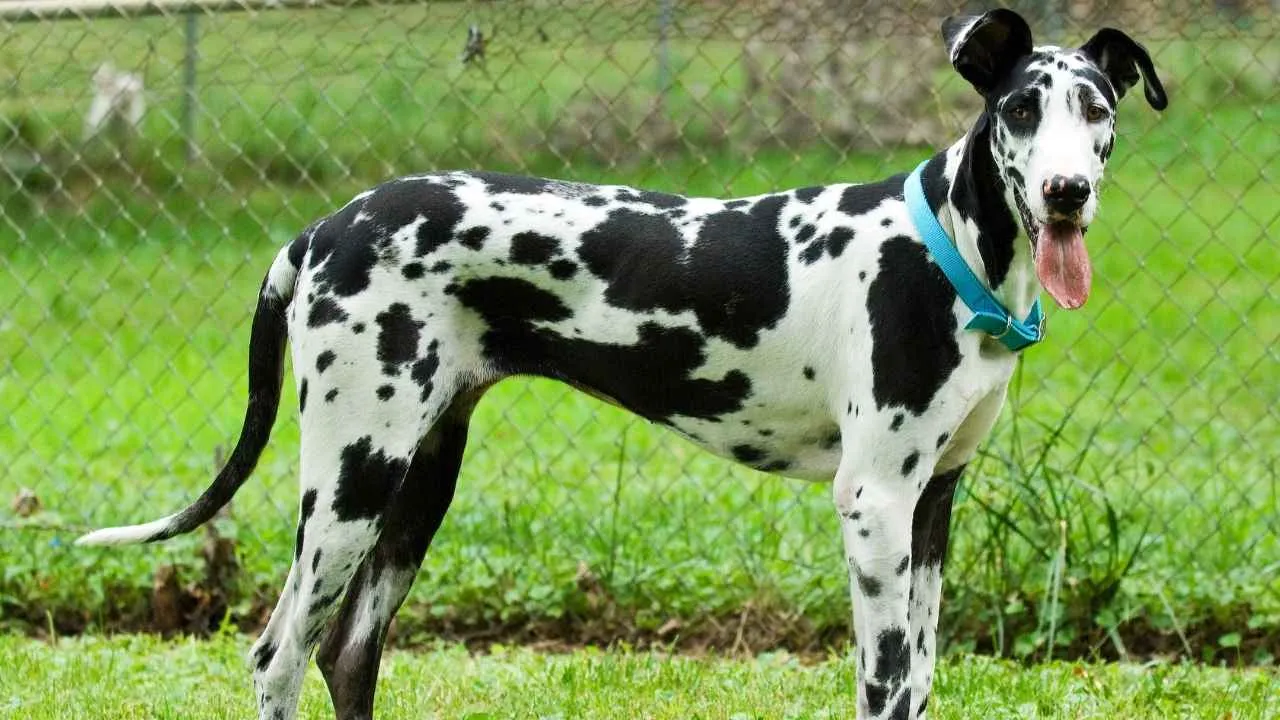
The Great Dane might be massive, but its heart is even bigger. These “gentle giants” are often described as couch potatoes with bursts of goofy energy, and their loyalty is unmatched.
While their sheer size can be intimidating, beneath that tall frame is a dog that’s affectionate, curious, and surprisingly light-hearted—especially during play.
Why Great Danes Stay Forever Young
Slow but Steady: They don’t race through their energy. Great Danes space out their playfulness, offering short, spirited bursts followed by generous helpings of rest, making them ideal for households that appreciate balance.
Playful Watchdogs: They take their role as protectors seriously but still love to clown around with their owners. That mix of silliness and alertness gives them a charming edge—one minute they’re alert at the window, the next they’re chasing a ball like it wronged them.
Distinct Traits That Set the Great Dane Apart
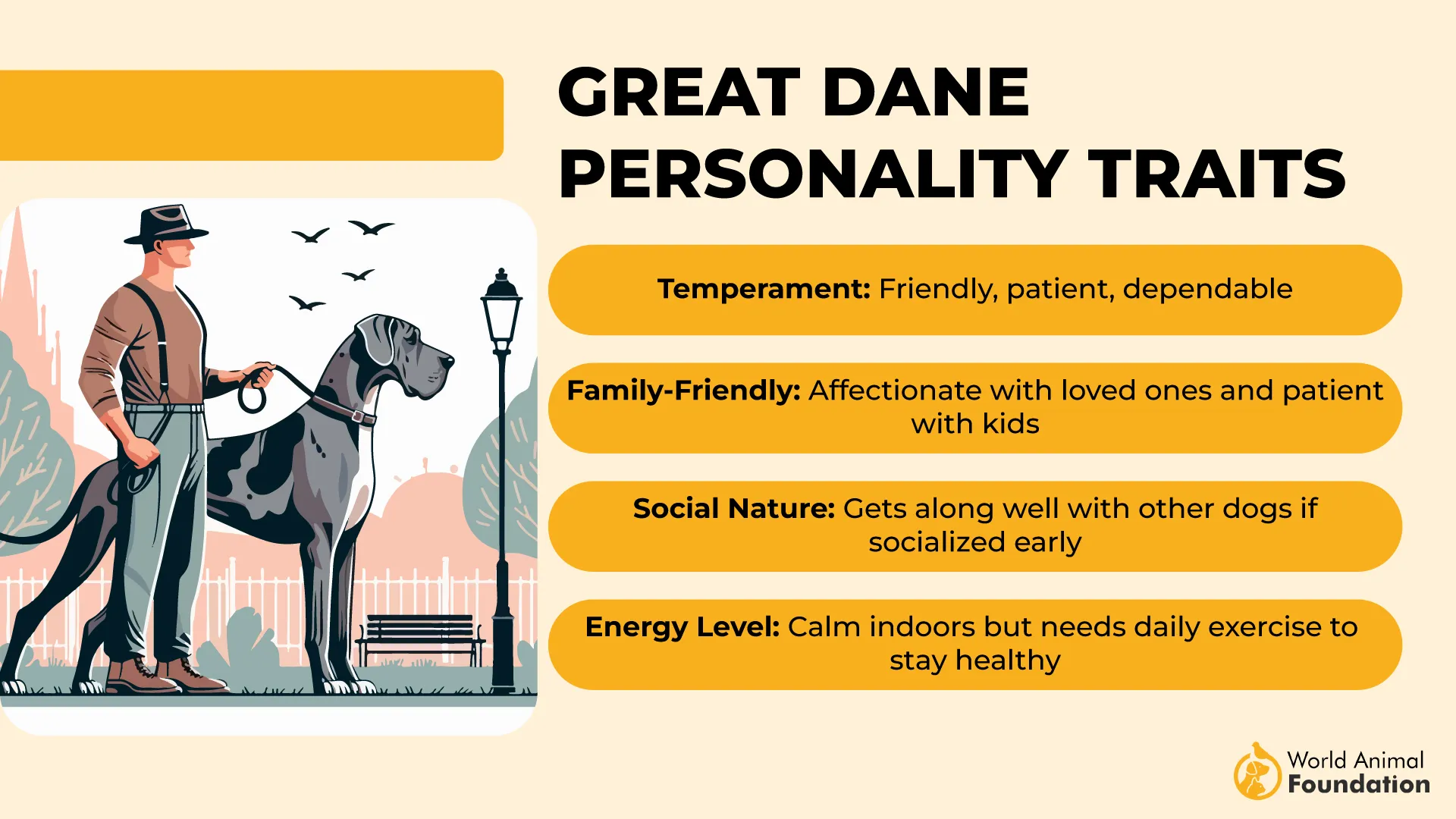
Indoor-Friendly Dog: Great Danes need space, but not endless acreage. As long as they can stretch out, they adapt surprisingly well to apartment or smaller home life, as long as they’re close to you.
Minimal Grooming Needs: Their short coats are smooth and low-maintenance. A quick brush now and then keeps them looking sharp without much fuss.
Velcro Personalities: These dogs need to be near their people. Expect them to lean on you (literally) or follow you like a silent, oversized bodyguard.
Deep-Chested Digesters: Because of their build, they’re more prone to bloat. Careful feeding schedules and slow-feeder bowls can help reduce this risk, especially important for long-term health.
Child-Friendly but Watchful: Their gentle demeanor makes them excellent around children, but their size means a little supervision goes a long way during play.
4. Bernese Mountain Dog
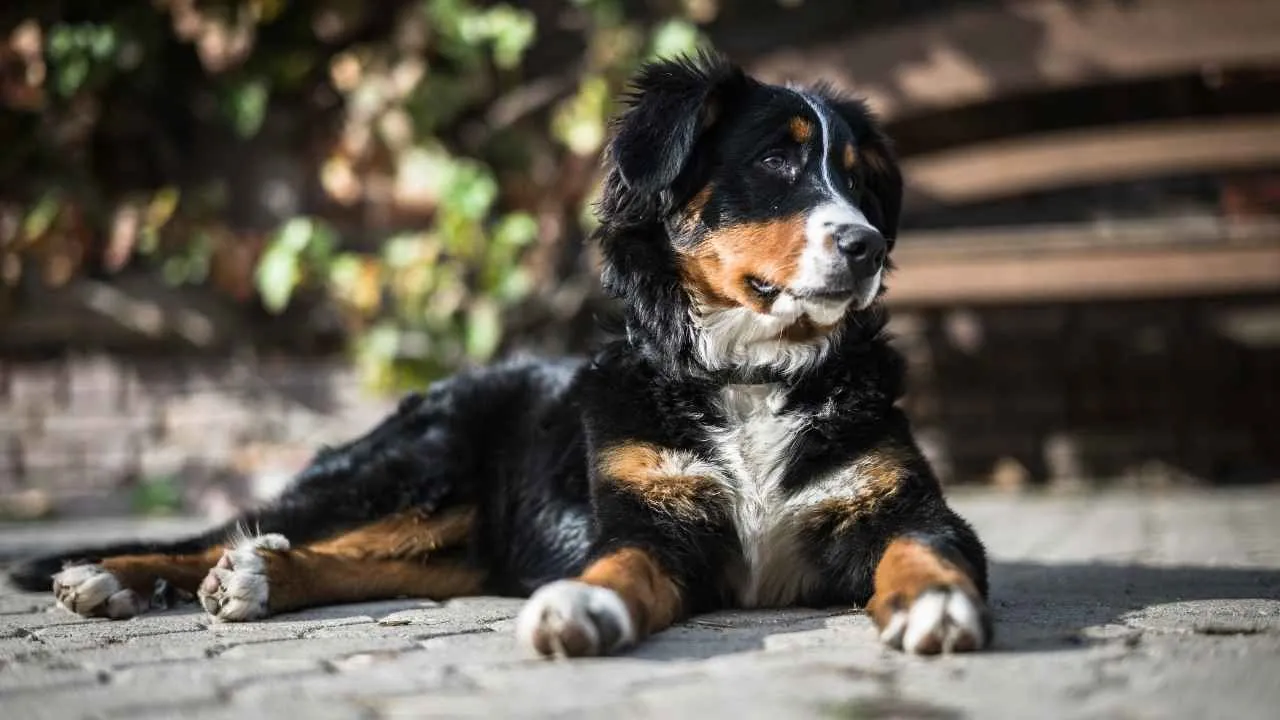
The Bernese Mountain Dog is a picture of gentle strength—a large, tri-colored beauty originally bred to work alongside farmers in the Swiss Alps.
While their sheer size might suggest seriousness, these dogs carry a surprising sense of fun well into their senior years. Whether chasing snowballs or goofily trying to sit on your lap, their playful nature endures long after puppyhood fades.
Why Bernese Mountain Dogs Stay Forever Young
Emotionally Attuned: They pick up on your moods and often respond with quiet companionship or gentle nudges, like a furry therapist.
Nature-Loving Souls: Give them a trail, a snowbank, or a cool breeze and watch their face light up with joy. They’re built for brisk climates and love the outdoors.
Surprising Agility: Despite being heavy-boned, many Berners stay nimble longer than expected, especially when given consistent, moderate exercise and affection.
Low Drama: They’re neither demanding nor hyper, just reliably upbeat and content when included in family life.
Distinct Traits That Set Bernese Apart
Velcro Dog Instincts: They love to stay physically close. If you’re on the porch, they’re under the table. If you’re gardening, they’ll “supervise” beside the shovel.
Distinctive Vocal Range: Not chronic barkers, but when a Berner has something to say, you’ll hear it—a deep, drawn-out “woo-woo” that’s more conversation than alarm.
Winter Warriors: Their thick double coat isn’t just for looks. They handle icy temps like pros and will gladly romp in snow while others shiver on the sidelines.
Unexpected Humor: They’ll surprise you with goofy grins, rolling antics, and the occasional sock theft.
5. Border Collie
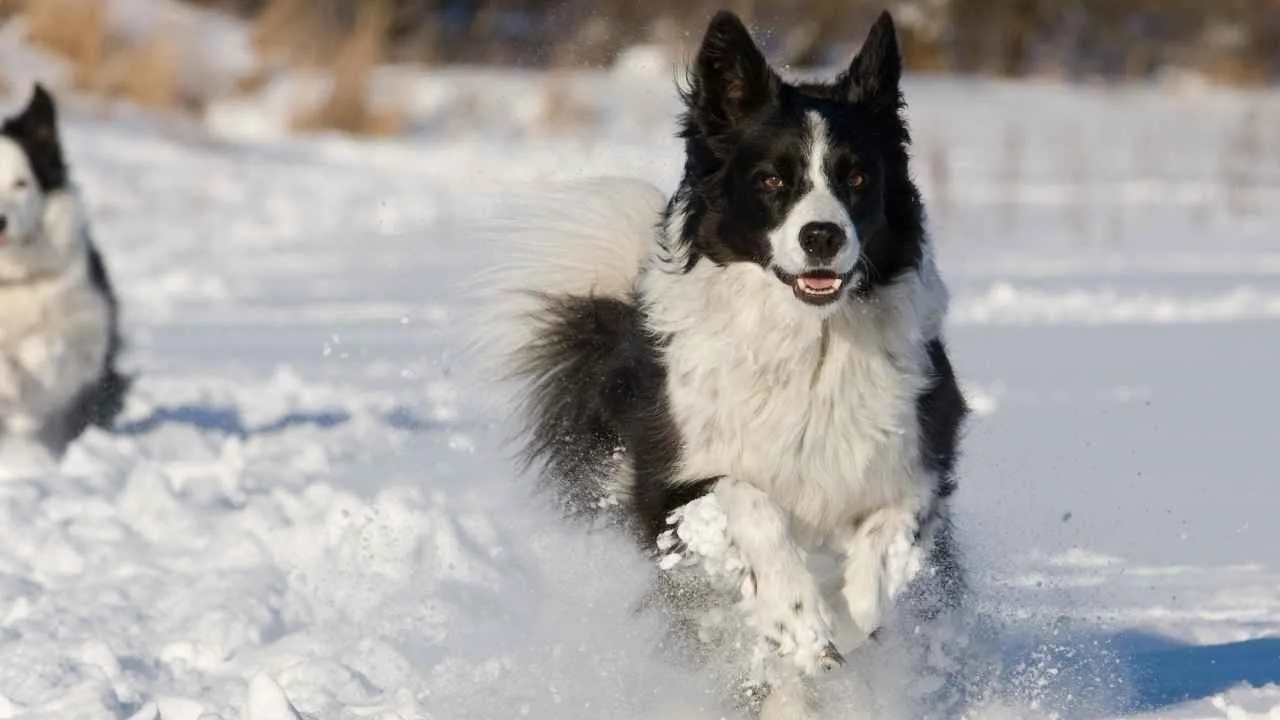
The Border Collie is a walking, intelligent brain in a fur coat. Originally developed to work sheep across the rugged hills between England and Scotland, this is a breed hardwired for movement, challenge, and mental stimulation.
Border Collies simply shift gears—they stay curious, task-focused, and full of playful drive even in their senior years.
Why Border Collies Stay Forever Young
Intellectual Overdrive: Ranked among the smartest dog breeds on Earth, they need puzzles, patterns, and purpose.
Always On: Border Collies don’t power down when they get older; they just redirect that energy. A retired working dog might become your good fit.
Emotionally Responsive: They read humans with uncanny accuracy—sometimes reacting before you even give a command.
Distinct Traits That Set Border Collies Apart
Hypnotic Stare: Their signature “eye” isn’t just intense—it’s a herding tool. They use their gaze to move animals, and occasionally, to guilt-trip you into one more game.
Quick on Their Feet: Their reflexes are sharp, their pace is fast, and their balance is top-tier. Even in older times, they’re impressively coordinated.
Lean Living: These are athletic dogs with efficient builds—not bulky, but powerful and graceful. A healthy weight is easy to maintain with regular activity and the right diet.
6. Boxer
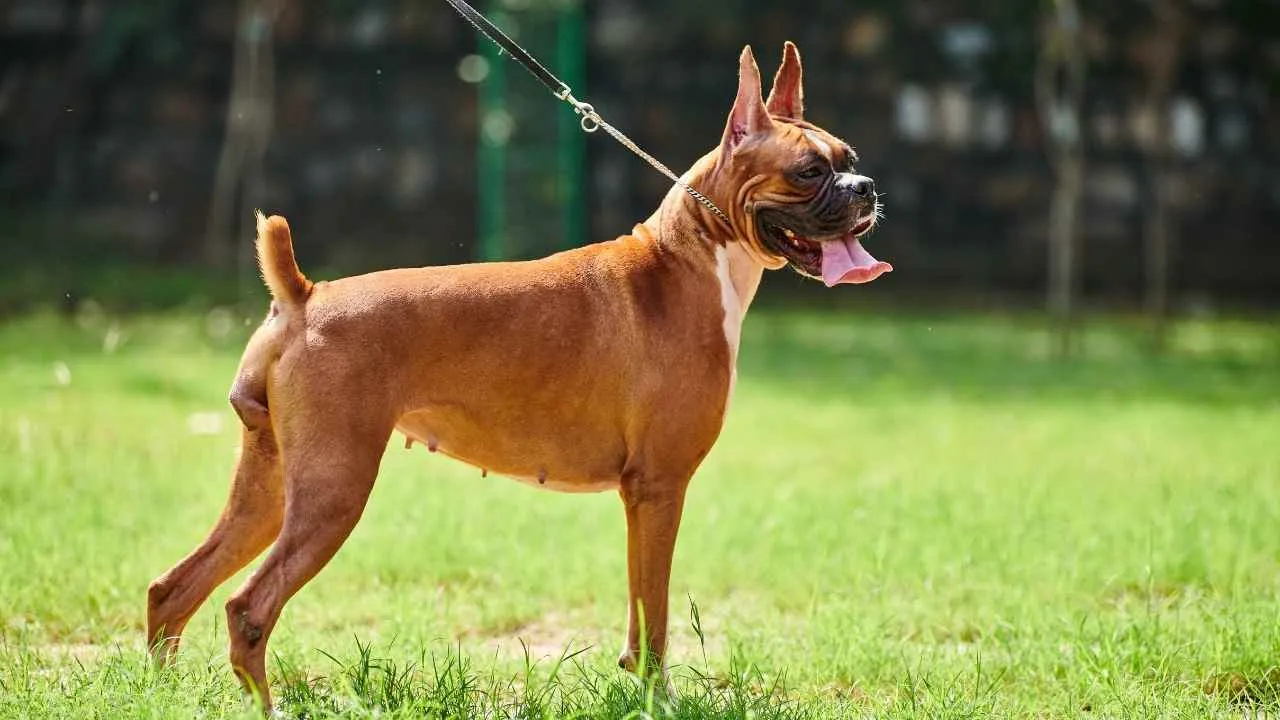
Boxers don’t do “mellow.” These square-jawed goofballs burst into puppy-like antics well into their senior years.
With their trademark wrinkled brows, expressive eyes, and endless enthusiasm, Boxers are the life of the room—and they’ll keep that spirit alive long after dogs have traded playtime for naps.
Why Boxer Stay Forever Young
Natural Clowns: Their playfulness isn’t just physical—it’s comedic. Boxers often use their paws like hands and have a knack for making you laugh without trying.
Emotional Mirrors: One of the most affectionate dogs you’ll meet, they tend to reflect the moods of their people, bouncing with excitement or calmly snuggling in.
High-Energy Lifestyles: Boxers thrive in households where they can run, fetch, play tug, and be part of every plan—because being left out is not an option.
Distinct Traits That Set Boxers Apart
Signature “Woo-Woo” Bark: They don’t always bark traditionally. Instead, Boxers often “talk” to you in odd growls, warbles, and head tilts that feel like a full conversation.
Family Bond: Despite their muscular build, Boxers are surprisingly tender with kids and small dogs they’ve bonded with. Their patience and protective instincts shine.
Shelter Standouts: Sadly, many Boxers end up in shelters due to misunderstood energy levels. But for the right home, adopting one can be life-changing.
7. German Shepherd
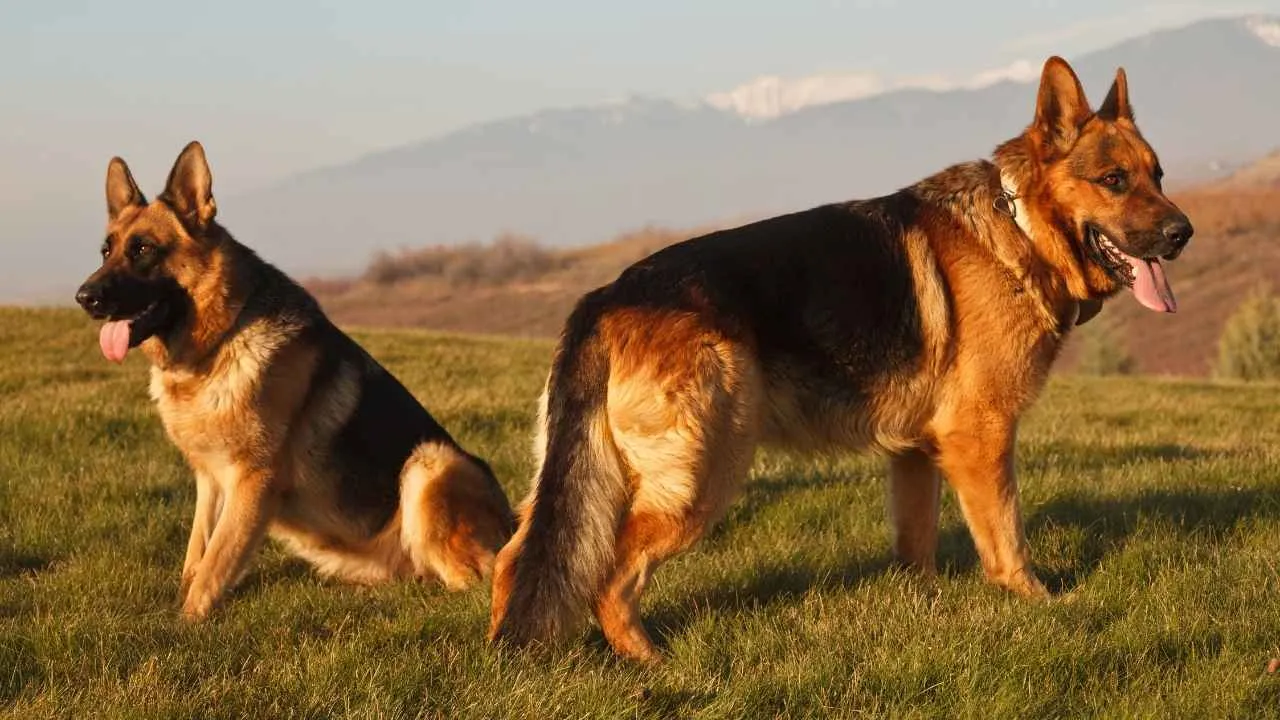
The German Shepherd isn’t just famous for its working ability—this breed also knows how to have fun. Beneath their confident posture is a dog that enjoys play, thrives on engagement, and forms lifelong bonds. Even as they mature, their energy for games and interaction rarely fades.
Why German Shepherd Stays Forever Young
Mental Sharpness: As one of the most intelligent dogs out there, the German Shepherd craves stimulation. Play isn’t just for burning energy—it’s a chance to solve problems, learn, and stay mentally young.
Drive for Movement: Whether it’s running, chasing, or structured games, German Shepherds need consistent physical activity. And they bring full focus to every second of it.
Distinct Traits That Set the German Shepherd Apart
Impressive Versatility: Guarding, guiding, herding dog—or just playing fetch—they can do it all. That flexibility is what makes them one of the best breeds for both work and companionship.
Not Just a Working Dog: People often overlook how much dogs love this breed for its affectionate side.
Ideal Size and Strength: As classic big dogs, German Shepherds strike the perfect balance between agility and power. They’re sturdy enough for outdoor adventure and quick enough for canine sports.
Compatibility with Families: With proper training and early socialization, they become great companions for kids and even other pets. Their protectiveness pairs well with affection, creating a unique family dynamic.
8. Australian Shepherd
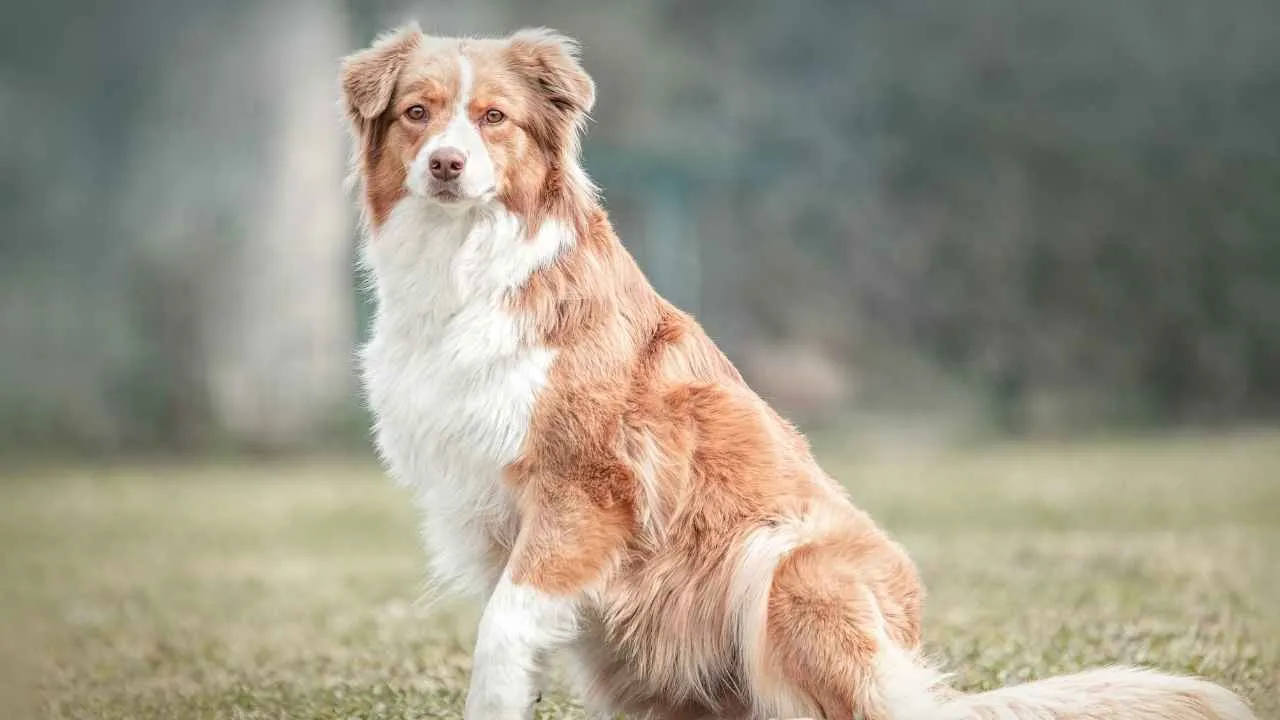
Australian Shepherds were developed in the United States, where they became iconic working dogs. But beyond their herding instinct and agility, these dogs are best known for their sharp minds, high energy, and an unstoppable drive to play—even into their senior years.
Why Australian Shepherd Dogs Stay Forever Young
Quick Thinkers: Smart dogs don’t get bored easily if they’re mentally engaged. Whether it’s solving a puzzle toy or learning a new trick, these dogs thrive on interactive play.
Social Engagement: They aren’t just chasing balls—they’re looking for connection. Play is a shared experience for them, not a solo sport.
Traits That Set the Australian Shepherd Apart
Work Ethic Meets Fun: They were bred to work all day, and they bring that same enthusiasm to play. That tireless spirit makes them ideal for space to roam.
Naturally Loyal: Australian Shepherds form strong bonds with their people. They don’t just follow commands—they tune into your energy and mood, turning play into something personal.
Early Training Pays Off: If you’re owning one of these dogs, start early. Aussie pups pick up commands fast, but without structure, their smarts can become mischief.
Best for the Right Homes: This breed is suited to people with time and patience. They’re not couch potatoes—they’re partners in motion.
9. Jack Russell Terrier

If there’s a dog that acts like it had an espresso for breakfast every day, it’s the Jack Russell Terrier. These tiny dogs are all-in on play, always alert, and bursting with personality. Even in their later years, they’ll chase a ball with the same wild joy they had as pups.
Why Jack Russell Terriers Stay Forever Young
Relentless Energy: Jack Russells were bred for fox hunting, and that high drive hasn’t gone anywhere. They’re wired to move, think, and interact nonstop.
Game for Anything: Whether it’s agility courses or backyard zoomies, these dogs find fun in everything.
Distinct Traits That Set Jack Russell Terriers Apart
Constantly Curious: These terriers are always looking for action, especially if it involves digging or chasing. It’s important to give them room to safely burn off energy.
Low Maintenance, High Output: While they shed year-round, their grooming needs are minimal. What matters more is how you manage their mental and physical exercise.
Not Ideal for Everyone: Due to their strong prey drive, they may not mesh well with cats or smaller breeds.
Longevity and Health: These dogs often live long, healthy lives—sometimes into their late teens—if you keep them active and engaged.
Conclusion
Some dogs don’t let age dim their spark. They’re still racing for tennis balls at ten, learning new tricks well past their puppy years, and making every day feel like a game. These playful dogs remind us that staying active and curious isn’t just a young dog’s game—it’s a mindset.
Of course, meeting the physical needs of a high-energy senior pup takes commitment. Regular training keeps their minds sharp, while daily walks or structured activities help them stay limber and happy.


